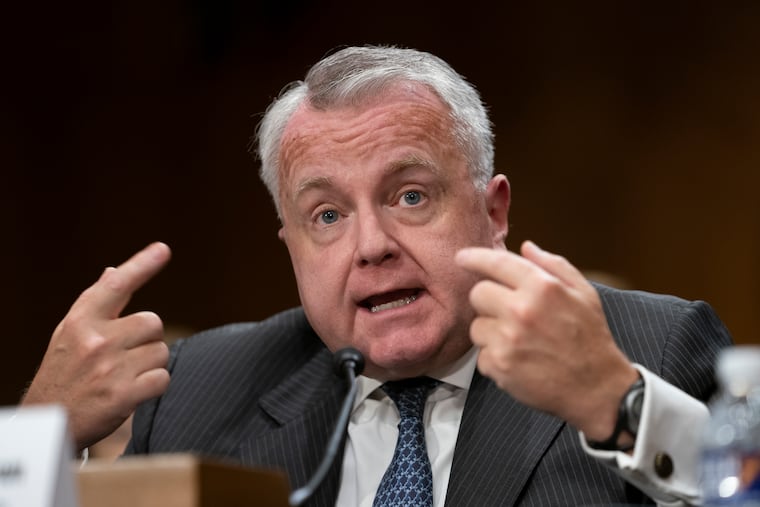Senate confirms State Dept official as ambassador to Russia
The Senate has voted to confirm the No. 2 official at the State Department as the next U.S. ambassador to Russia

WASHINGTON — The United States has a new ambassador to Russia after the Senate voted Thursday to confirm the No. 2 official at the State Department to the post.
Deputy Secretary of State John Sullivan was confirmed by a 70-22 vote. An unusually large number of Democrats supported the nomination in the current impeachment-charged partisan political atmosphere on Capitol Hill. Senate votes on President Donald Trump's nominees are often much closer and typically fall on strict party lines.
Sullivan will replace Jon Huntsman at the helm of the U.S. Embassy in Moscow. Huntsman stepped down from the post in August and is now running for governor of Utah, a job he held a decade ago.
Sullivan's confirmation comes at a tense time in U.S.-Russia relations that have been damaged by Russian interference in the 2016 presidential election and marred by bitter disagreements over Ukraine, Syria and Venezuela. The two countries have also engaged in tit-for-tat diplomatic expulsions over the past three years.
Sullivan had been the lead U.S. official in talks with Russia on counter-terrorism and strategic security and testified in his confirmation hearing that Russian efforts to undermine democracies must be combated. He said then that he would be "relentless" in confronting Russia over election interference, hostile moves against neighbors such as Georgia and Ukraine, human rights abuses and violations of arms control agreements.
Despite that stance, Russian Foreign Minister Sergey Lavrov said on a trip to Washington this week that Sullivan would be welcome in Moscow. “We know him as a very highly professional diplomat; we’ll be happy to cooperate with him,” Lavrov told reporters at a joint news conference with Secretary of State Mike Pompeo.
But Sullivan, who held senior positions in the Justice, Defense and Commerce departments in both Bush administrations, is perhaps more widely known from the Ukraine-related impeachment proceedings against Trump.
Sullivan was the official who delivered the news to former U.S. Ambassador to Ukraine Marie Yovanovitch that Trump had lost confidence in her and that she was being recalled early from the post. Sullivan told the Senate Foreign Relations Committee in late October that he was given no other explanation for Yovanovitch's removal and told her that he did not believe she had done anything to warrant her recall.
Asked why he did not oppose Yovanovitch's ouster or speak out publicly on her behalf at the time, Sullivan said ambassadors serve at the pleasure of the president and can be removed with or without cause. He noted that his uncle, a former U.S. ambassador to Iran, had been recalled early from Tehran by the Carter administration for what the family believed to be unfair political reasons.
"When the president loses confidence in the ambassador, right or wrong, the ambassador goes," Sullivan said, adding that he and Pompeo had tried to push back on Giuliani's campaign.
Sullivan said he reviewed a package of negative information about Yovanovitch that was given to the department by "someone at the White House" after he and Pompeo inquired about complaints against her from Trump's personal attorney Rudy Giuliani and others. But Sullivan said he concluded the information contained nothing that would warrant action against her.
Many of the Democrats who voted against Sullivan's ambassadorial nomination, including the ranking member of the Foreign Relations Committee, Sen. Robert Menendez of New Jersey, had earlier expressed concerns about his judgement and handling of the Yovanovitch dismissal.
The Senate is expected soon to vote on the nomination of Steven Biegun to replace Sullivan as Pompeo’s top deputy. Biegun, a former Ford Motor Co. executive, is currently the special envoy for North Korea and has been the lead negotiator with North in now-stalled denuclearization talks. Trump nominated Biegun to the post on Oct. 31, a day after Sullivan’s confirmation hearing.